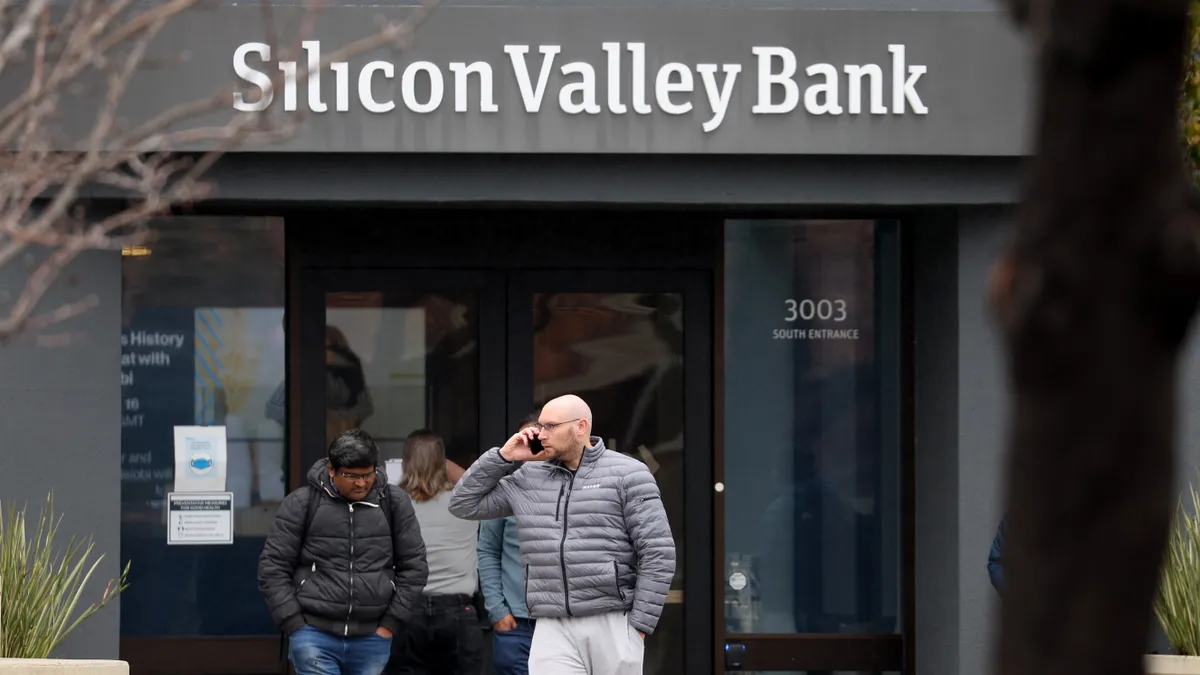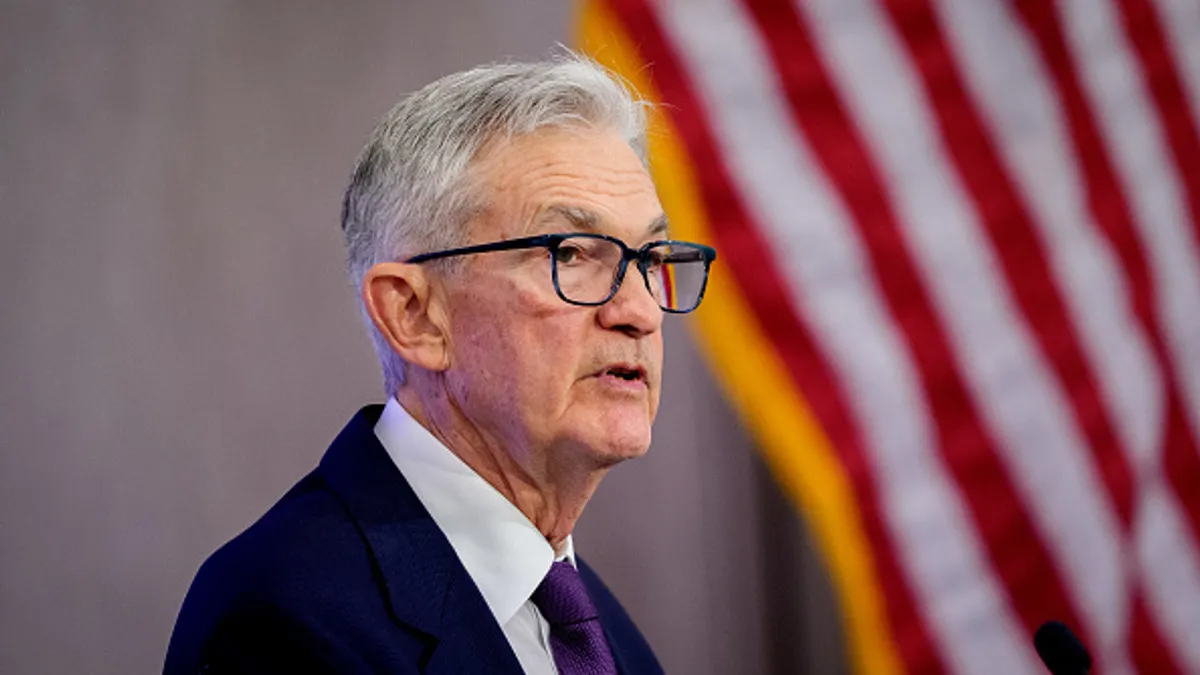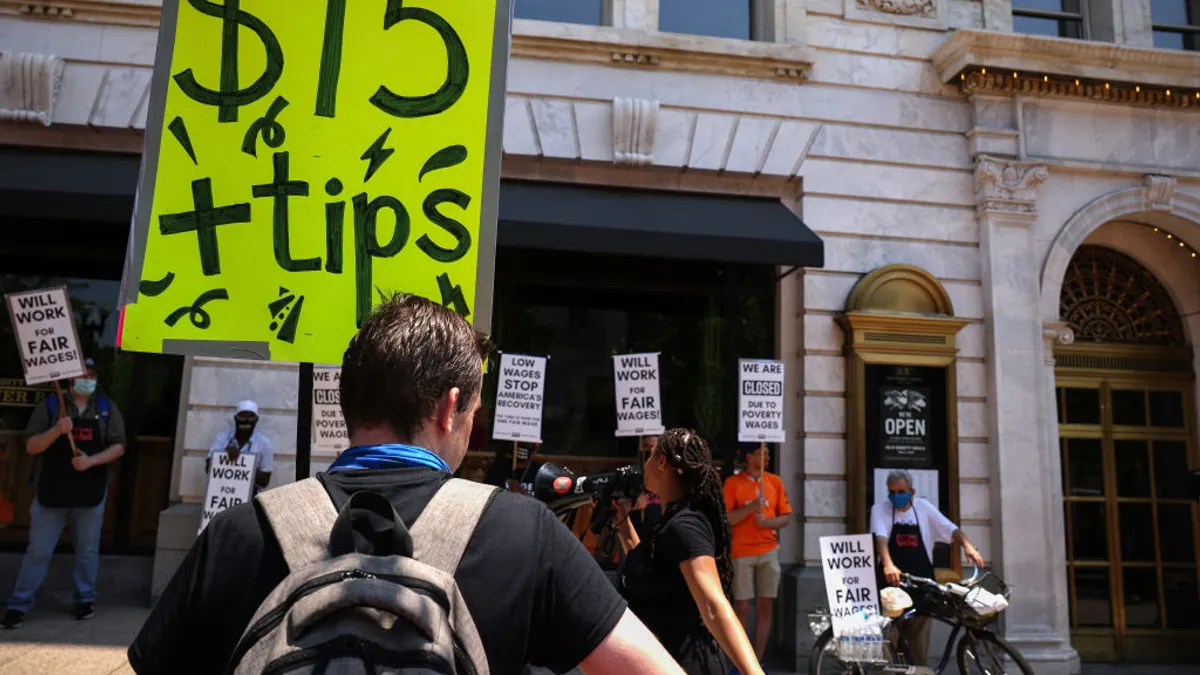The March scramble for liquidity that the Silicon Valley Bank failure triggered remains a vivid memory seared into the outlooks that are guiding CFOs as the year draws to a close, according to a panel of executives speaking Tuesday at the MIT Sloan CFO Summit in Boston, Massachusetts.
The bank’s dramatic collapse — stemming at least in part from rising interest rates and SVB’s struggle with losses on bonds issued when rates were lower, according to The Wall Street Journal — encapsulated the real-life consequences of the high-rate environment that remains a top challenge for CFOs, said Chris Caprio, recently named CEO and former CFO of Focus Technology, an IT firm.
“The defining theme of the year is the impact of high interest rates on our lives … and SVB raised the awareness of that,” Caprio said in an interview on the conference sidelines after speaking on a panel titled “Cash is Still King.”
The Federal Reserve’s battle against inflation that has pushed the main interest rate up to a 22-year high has led the executives on the panel to tighten and adjust their cash strategies, they said.
Caprio, when asked about his approach to holding cash, said his Boston-based IT firm is paying more attention to getting paid in a timely fashion as it manages more delayed payments from its middle market enterprise customers, who can now earn much more on their money than the half percent interest rate they would see a few years ago.
“Now that they’re getting 4 or 5% more it tends to be a struggle to pull cash out — even out of cash-rich companies,” Caprio said. “So we’re really managing that tightly and trying to figure out what we can do to incent some of these companies to pay us sooner. We’re a small middle market company and one or two late vendors and we’re kind of in a bind.”
At Wilmington, Massachusetts-based Locus Robotics, which provides mobile robots and software solutions used in fulfillment warehouses, CFO Dustin Pederson said the company mainly uses its cash to pay its employees and fund its inventory. Now, he’s been much more focused on running a leaner inventory and managing it more actively with his procurement team even though he said the company is not a “just-in-time shop.”
“Every dollar of inventory is a dollar of cash that’s sitting on the shelf not doing anything for you,” Pederson said.
A harrowing week
The panelists also talked about how they were affected by SVB, after panel moderator Jeff Dykstra, a principal at KPMG, asked them how prepared they felt for what turned out to be an unanticipated and significant cash event.
Pederson, whose firm’s operating account was with SVB, didn’t varnish the challenges that posed for him. “It was a very harrowing week,” he said of the days around the bank’s failure, noting that he received phone calls from every single board member in a matter of two or three hours and had to explain to them why their bank’s website kept locking up so they couldn’t get the company’s money out.
Initially he said he was “in the very uncomfortable position of having to tell my controller to email every single one of our clients telling them not to pay us, right, because they were our operating account,” he recalled. “That was interesting. And ‘by the way we don’t have a back up bank account so just hold tight until we get back to you whenever we get one set up.’”
Thankfully, he said he’d previously done research that enabled him to assure board members the company’s money was in an SVB cash sweep account which was in his firm’s name, rather than a different product that was in SVB’s name that would have earned a slightly higher return. “It felt very good to be prepared to say...’we’re not going to lose the money.’ Maybe we couldn’t access it for a period of time but the capital was still there and still in treasury bills effectively in Locus’ name,” Pederson said, who then worked over the weekend with Chase to get an operating account set up.
Kelly MacDonald, CFO of Emeryville, California-based Dynavax, who was also on the panel, noted that one of the main takeaways from the scenario was around fraud protection. The SVB situation was “fraught with fraud risk” even though she fortunately didn’t hear about a lot of fraud occurring. But since that time she learned the best practice to avoid potential fraud is to be on the phone with banks when large sums of money are being transferred. “For us it was a reminder to be very strict with these things,” MacDonald said.
The panelists also noted that recent key events such as SVB’s failure and the COVID-19 shutdowns point to the need for CFOs to do contingency planning and identify risks ahead of time as much as possible. “It seems like you get paid for [handling] the disasters that happen,” Caprio said, noting that finance chiefs must be prepared for macro and micro risks.






















